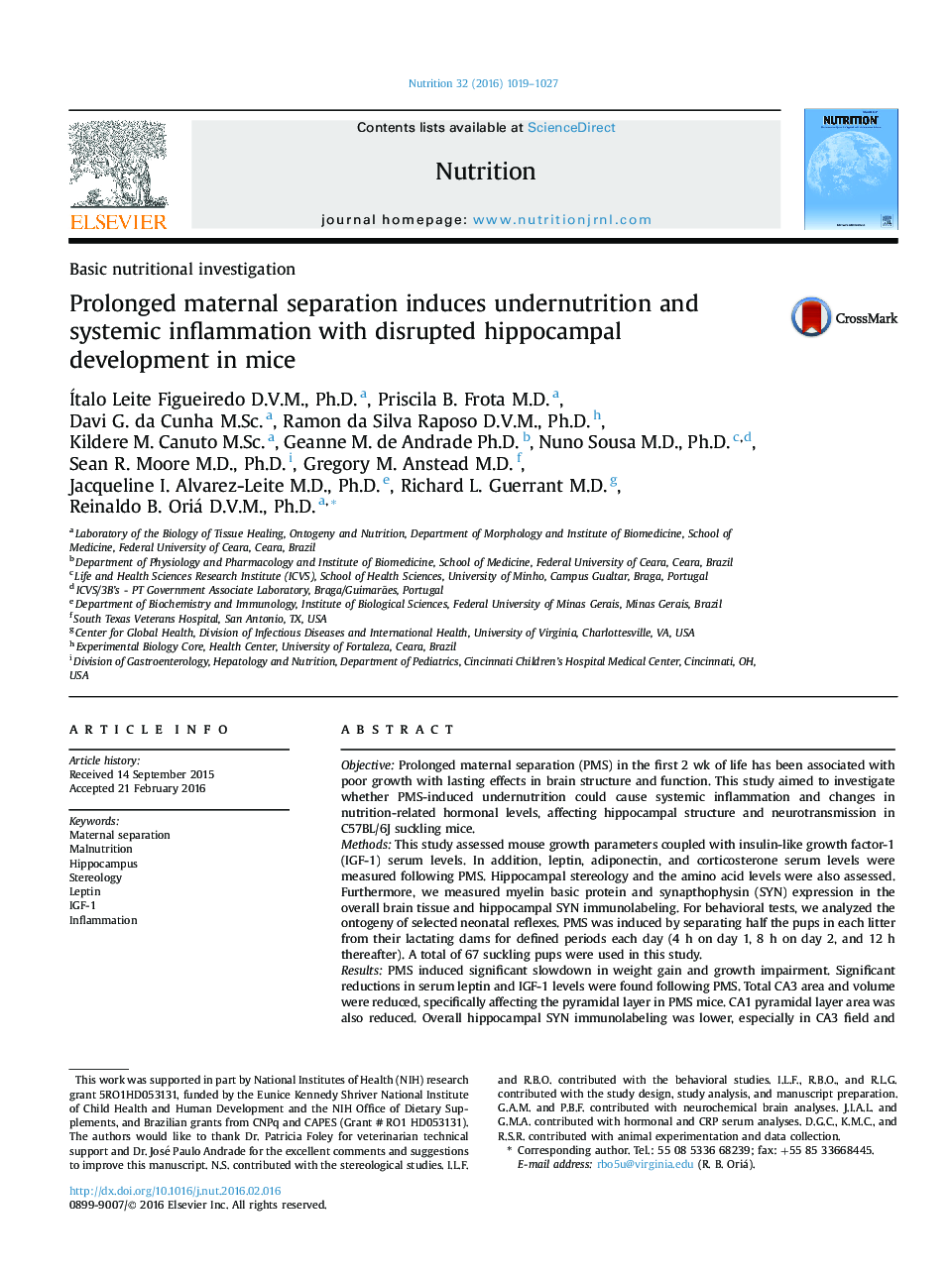| Article ID | Journal | Published Year | Pages | File Type |
|---|---|---|---|---|
| 3276106 | Nutrition | 2016 | 9 Pages |
•Prolonged maternal separation induces systemic inflammation.•Prolonged maternal separation affects insulin-like growth factor-1 serum levels and growth.•Prolonged maternal separation delays neonatal reflex development.•Prolonged maternal separation affects hippocampal morphology and amino acid levels.
ObjectiveProlonged maternal separation (PMS) in the first 2 wk of life has been associated with poor growth with lasting effects in brain structure and function. This study aimed to investigate whether PMS-induced undernutrition could cause systemic inflammation and changes in nutrition-related hormonal levels, affecting hippocampal structure and neurotransmission in C57BL/6J suckling mice.MethodsThis study assessed mouse growth parameters coupled with insulin-like growth factor-1 (IGF-1) serum levels. In addition, leptin, adiponectin, and corticosterone serum levels were measured following PMS. Hippocampal stereology and the amino acid levels were also assessed. Furthermore, we measured myelin basic protein and synapthophysin (SYN) expression in the overall brain tissue and hippocampal SYN immunolabeling. For behavioral tests, we analyzed the ontogeny of selected neonatal reflexes. PMS was induced by separating half the pups in each litter from their lactating dams for defined periods each day (4 h on day 1, 8 h on day 2, and 12 h thereafter). A total of 67 suckling pups were used in this study.ResultsPMS induced significant slowdown in weight gain and growth impairment. Significant reductions in serum leptin and IGF-1 levels were found following PMS. Total CA3 area and volume were reduced, specifically affecting the pyramidal layer in PMS mice. CA1 pyramidal layer area was also reduced. Overall hippocampal SYN immunolabeling was lower, especially in CA3 field and dentate gyrus. Furthermore, PMS reduced hippocampal aspartate, glutamate, and gamma-aminobutyric acid levels, as compared with unseparated controls.ConclusionThese findings suggest that PMS causes significant growth deficits and alterations in hippocampal morphology and neurotransmission.
